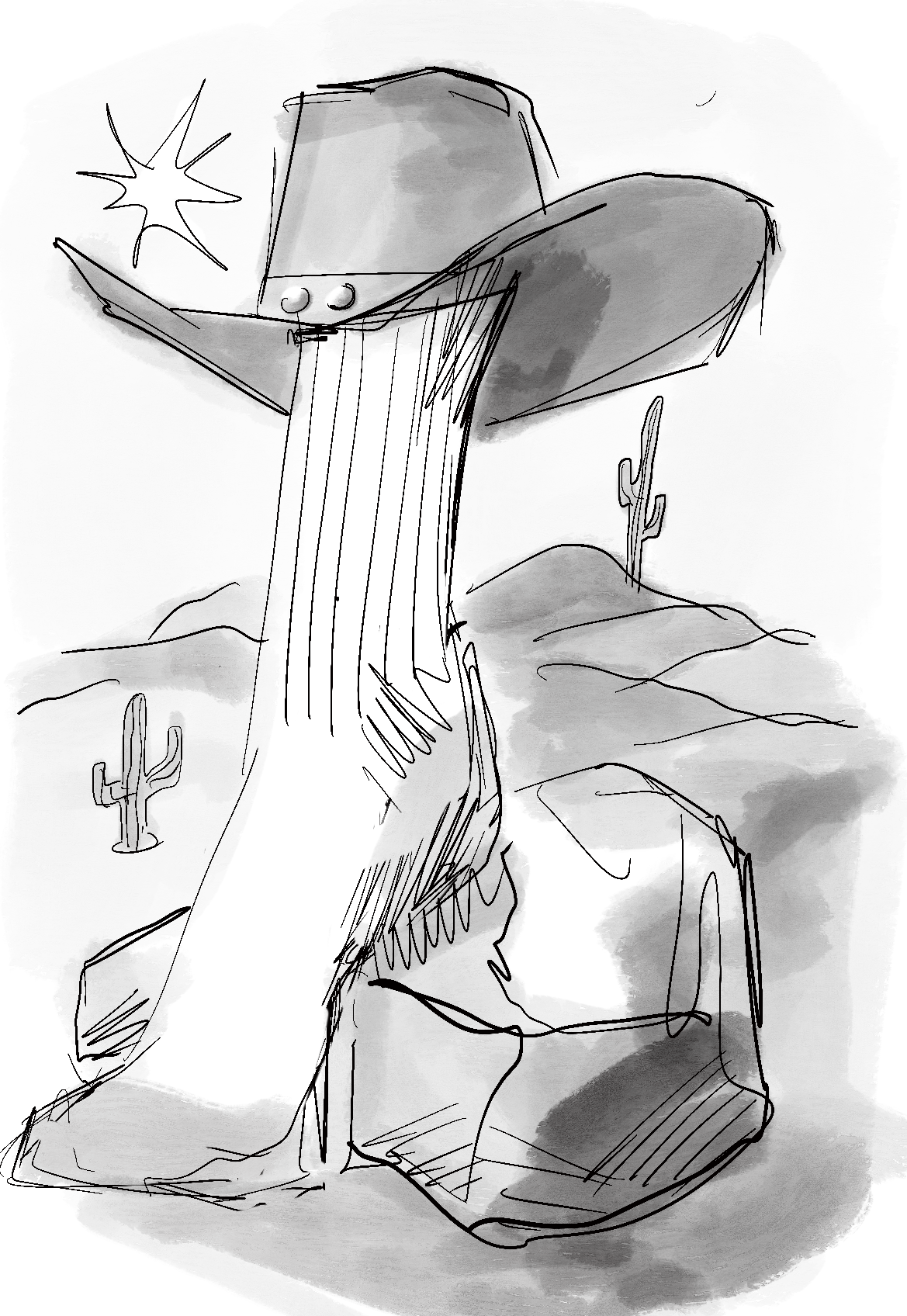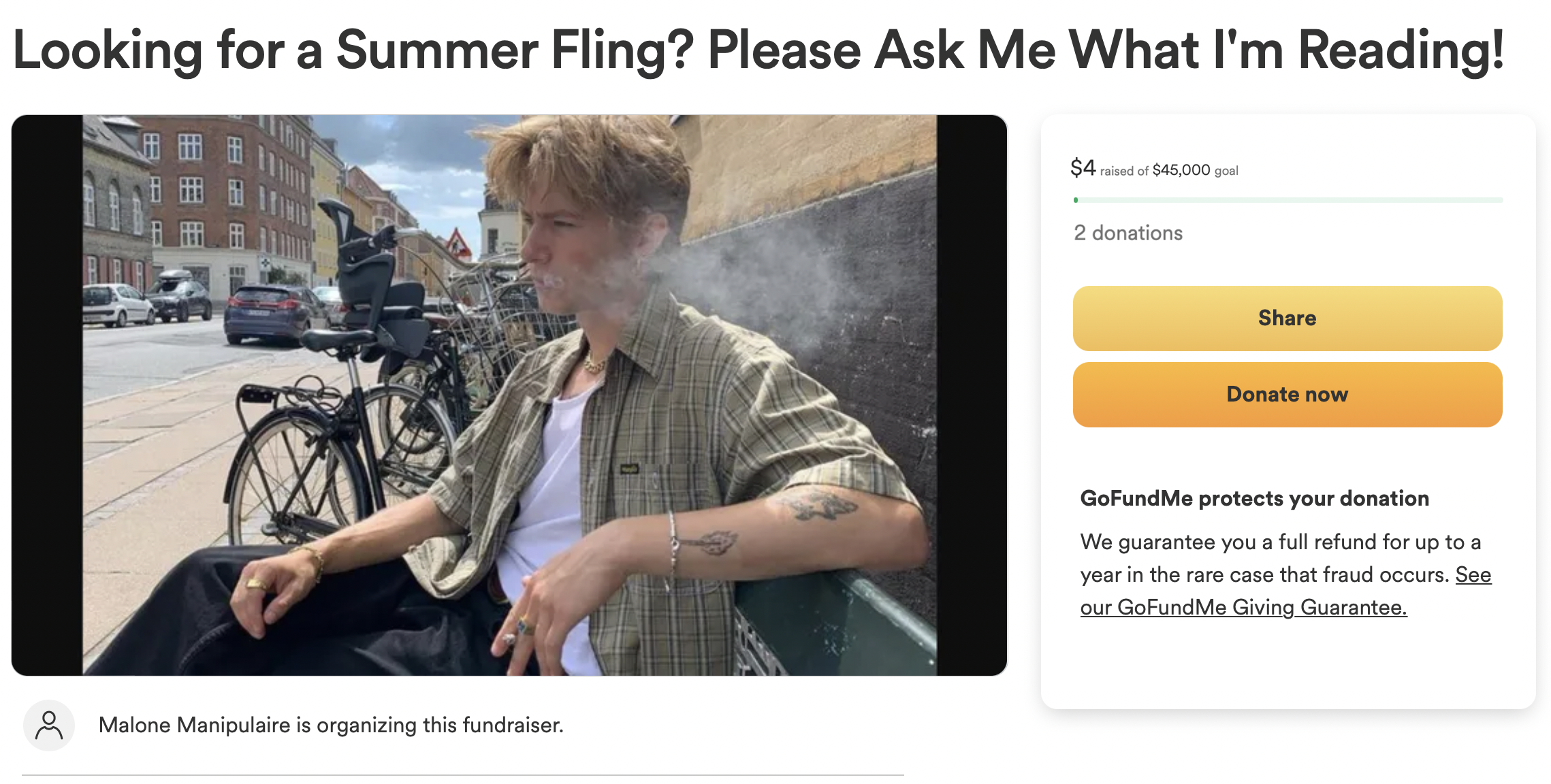I remember the day she left like the back of a man’s foot.
We stayed together the night before, folded up at the top, spoonin’ one another, whisperin’ like we were the only socks in the drawer. We giggled when they shushed us, sayin’ that The Man had to run the next mornin’,—that we’d be up at dawn—but she didn’t mind. We were young. She thought I was somethin’ sweet.
I slept holdin’ her. I made her laugh the way only a woman knows to laugh, teasin’ her, ticklin’ her cross-stitch, coolin’ her anger by makin’ her smile, makin’ her madder ‘cause she laughed. I loved her real gentle.
I woke up first, makin’ sure not to move, so she wouldn’t come awake. I watched her sleep; saw her stripes rise and fall; held the curves on her body stretched by the man’s bunions, her frayed wool holdin’ onto the toils of life. She was the prettiest sock I’d ever seen. She was my pair.
Maybe I said somethin’ wrong. It don’t even matter now; I teased her too hard, not knowin’ her embarrassment ‘bout the tear he made with his snaggly toe-nail, and I hurt her. She loosened herself from the fold tyin’ us together. My bullheadedness thought she was bein’ too sensitive—had too much fabric softener in the last wash, like my old man used to say. The man fumbled for her and another loose sock that mornin’. We’d settle it in the evenin’.
Guilt stretched my seams all day waitin’ for her to come back. I figured he’d be washin’ her within the day, seein’ how he gets the meat sweats, so when she didn’t come home, I started worryin’. I hoped he might be waitin’ til’ he had more for the load, knowin’ his hygiene, but I’d heard stories of frightenin’ things happenin’ to socks like us. Men drawin’ faces on us, mockin’ us , wearin’ our skin on their hands, pretendin’ we don’t feel nothin’.
I couldn’t sleep that night.
I watched the sun rise through a crack in the unfinished pine. I traced his silhouette movin’ ‘round, and when I couldn’t smell onions no more, I knew he was gone. We danced about, thinkin’ he’d bring the laundry back, hopin’ to see our friends again. Light poured in as the drawer widened. We held our breath and closed our eyes, playin’ inanimate object, and I ran through my apology ‘til I heard the drawer close.
I thought she musta’ been hidin’, gettin’ me back, so I called her name. “I know you’re playin’, Ms. Kirkland,” I hollered, searchin’ every corner, turnin’ over every loose tag. I made the tighty-whities turn themselves inside out, thinkin’ she’d be hidin’ inside. Maybe some fitted sheet snagged her, wound her up in a corner, holdin’ her captive til’ the next time the man washed his sheets, meanin’ I wouldn’t see her for two months time. She couldn’t be gone.
I waited. The other socks tired of my interrogatin’, askin’ ‘em when they’d last seen her, askin’ ‘em if she’d made it out the washer. They didn’t know nothin’. I went through the washer myself a few times tryin’ to find her, slippin’ onto the floor hopin’ she might be under the dryer. I never found her.
Every couple years, new socks came in, replacin’ the tattered ones, but I stayed in the back, prayin’ for my lady to come home. Pioneers left, sayin’ they’d stay in the dryer and get picked up by another man washin’ his clothes, sayin’ they’d try to find my baby on the frontier and bring her home, but I couldn’t leave. I had to be here when she came back. I stayed in a pile with the other widowed socks in the back of the drawer, keepin’ each other warm, hopin’ we’d find our babies.
Time put me through her “bulky” cycle, splittin’ my seams, wearin’ me down. New socks phased in, old socks phased out, but I hid in the back, sleepin’ poor, dreamin’ rich. Of her.
“Move on,” they said. “For the sake of yourself.”
“There are plenty o’ socks in the drawer.”
Ladies tried to tempt me. A pair o’ Fishnets passed through, tryin’ to tangle me in her sinewy strings. Couldn’t feel nothin’ for nobody but my baby. I still smell the downy in her Kirkland Signature seams brushin’ against me when she’s sleepin’. Sometimes, when I’m dreamin, I think she’s here.
But she ain’t in this drawer no more.
Sadness stuck on me like a burr. I folded in on myself. One winter, I found myself all lonesome in the drawer with nothin’ but a handkerchief and a speedo nearby. The man wasn’t doin’ his laundry. I fear’d I’d be chosen.
He grabbed me. He wore me out, mismatched with a used sock, in a stinky pair of slides, exposin’ me to the cold air, woundin’ an old sock, not carin’ ‘bout treatin’ me right. He stabbed me with his big toe, exposin’ his ingrown toenail to the outside, practically killin’ me. I prayed for the laundry basket.
That night, when he took me off, he inspected me. I never used to be thin enough to wear through. I kept my eyes closed. Instead of his blue-cheese laundry, I felt myself hit somethin’ cold, bruisin’ my cracklin’ seams. I saw “sneerglaW” written on the walls and found myself surrounded by tissues and half full NAKED bottles—avertin’ mine gentlemanly eyes. I slept, too weak to stay awake, hopin’ to ease my sufferin’.
Couple days later, I found myself in a bigger trash can. No light. I clung to a sticky wall, wishin’ I had the strength to tear myself apart, prayin’ for a swift end. I smelled smoke.
I dreamt of her.
One last time, I saw stitches I’d memorized night after night. Felt the loose end of her long seam in the deepest part of her, the part only I (and the man’s yellow talon) could touch. I heard her voice so clear it seemed alive. Like she was waking me up.
“Mr. Kirkland,” she yelled. “Mr. Kirkland,”
I opened my eyes, knowin’ it was a dream. Queen Mab must’a taken my sickly mind.
“Mr. Kirkland,” I heard again, in her voice.
With the little strength I had, I turned ‘round.
She smiled on me.
I still ain’t sure if she’d really been there, but we held each other in the fiery passion of a regular garbage fire. She looked the same as ever.
— L. Conklin




